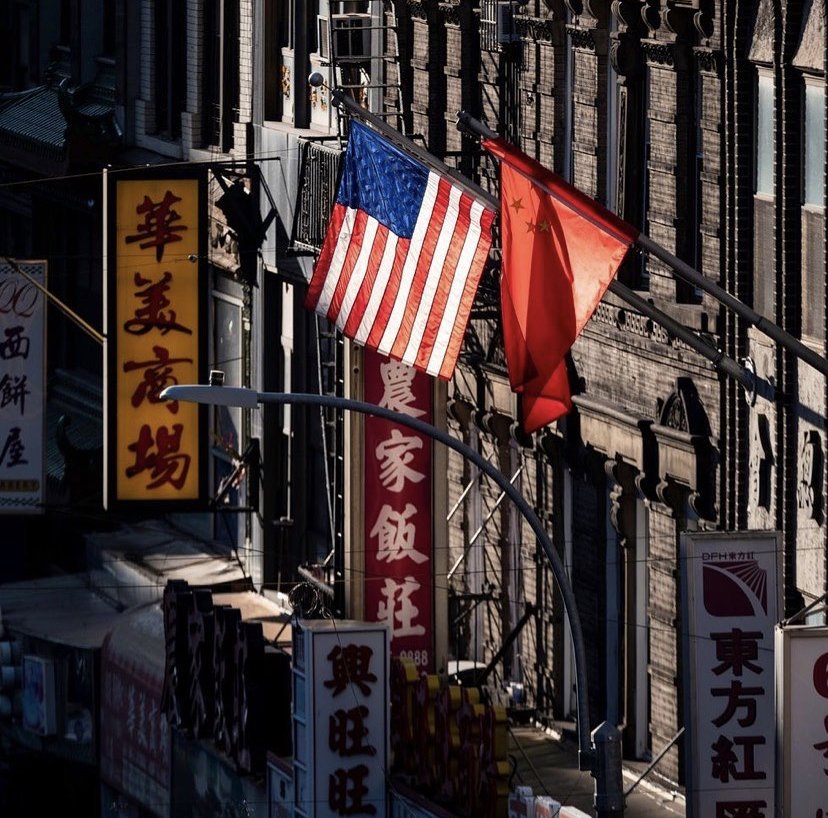I am a first-generation American, but in another life, I would have been fourth-generation.
My great grandmother was born in Oakland, California shortly after the Gold Rush. However, due to the Chinese Exclusion Act of 1882, she was wrongly deported to China, a country she had never even seen. In one fell swoop, she lost her home, life, and friends, subsequently being forced to start anew in a foreign land.
Three generations of my family—my grandmother, mother, and sister—were all born in China. It wasn’t until 1984, 40 years after the Exclusion Act was repealed, that my grandmother was able to reclaim her American citizenship and immigrate her family to the United States.
I was raised in a Chinese household in a predominantly Latinx neighborhood with gang-presence. The majority of my friends were of Mexican and Salvadoran descent. The Christmases we didn’t celebrate at home, I spent drinking champurrado and playing Loteria with my friends and their family. And although I embraced their culture through food, music, and language, they didn’t always embrace mine; my friends were often the same people who put me down because of my ethnicity.
I grew up ashamed to be Chinese—ostracized even. From the eye-tugging and name calling to ignorant questions like if I ate dog, being Chinese became very inconvenient for me. On top of going to school, being a first-generation meant being the family correspondent, test prep tutor, translator, and secretary—all at the young age of 9. Because immigration policies taught us to assimilate, I grew resentful towards my family for not learning English, not realizing they didn’t have the time or resources to learn a new language while juggling multiple jobs to put food on the table.
Because of the model minority myth, where Asians are perceived and expected to be perfect, there was very little room to ask for help. At 10, I started my first graphic and web design business to help pay the bills—an experience when shared, is perceived as shocking, but necessary at the time. The idea that Asian Americans are monolithic, prosperous, well-educated, and successful in nature is detrimental to society. There are a host of disparities within the Asian community that many tend to look over, but many have used our perceived success to drive a wedge between other racial and ethnic minority groups.
Because of this myth, I was always given the benefit of the doubt in school. I saw the system work for me in ways it didn’t work for my peers. They were targeted, marginalized, and funneled out of public schools and into the juvenile and criminal justice systems. These are families with histories of poverty, abuse, and neglect, who would have benefited from additional educational and counseling services, but instead, were isolated, punished, and pushed out.
It wasn’t until I began living and traveling outside of the US that I fully embraced my culture and became proud of my heritage. I was in Ireland when someone asked where I was from. “California,” I said. “No, where are you from?” “Los Angeles…” I responded. “No, no, where are you really from? Where are your parents from?” they insisted. “China,” I finally conceded. He then went on to ask if I spoke Chinese and requested that I say a few words, as if I were part of a circus act. But I quickly realized he was asking me all these questions not to offend me, but out of genuine curiosity. He hadn’t been exposed to many Asian people.
It was then I became more assertive in teaching people how to pronounce my last name and sharing Chinese traditions, culture, and food.
Since the COVID-19 shelter-in-place mandate was enforced, I have been blamed for the outbreak and told to “go back to China,” but racist sentiments, stereotypes, and micro-aggressions against Asians are not new.
They were there when strangers would approach my family and speak in a fake accent to mock us. They were there when I went to Florida for a business conference and every Uber driver I had insisted on telling me how much they love Japanese culture. They were there when the new people I’d meet felt the need to tell me how many Asian friends they had and how they could definitely tell the difference between us. They were certainly there when I walked into a break room and had a colleague immediately bow to me with prayer hands.
As we find ourselves at the confluence of a global pandemic and a significant moment in history, with respect to racial equity and social justice, my own experiences with racism, which seem insignificant when compared to the systemic dehumanization of Black/African Americans, have made me a stronger advocate and supporter of change – change in policies, corporate practices, attitude and behaviors that create equality for all.
I hope everyone is taking the time to be more introspective about their own biases. I call upon everyone to educate themselves. Recognize when you have privilege and use it to create equity for those around you. Not everyone you meet was born under the same circumstances and with the same resources and opportunities. I hope 2020 has challenged you to do and be better. I hope 2020 is the year we turn over a new leaf.
